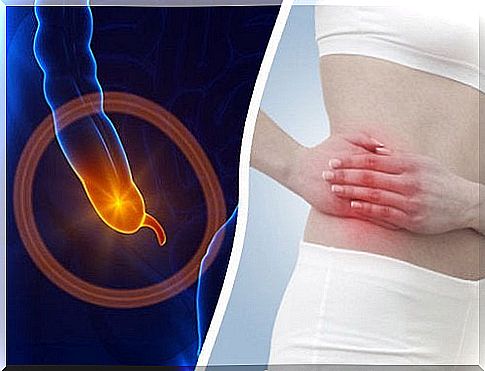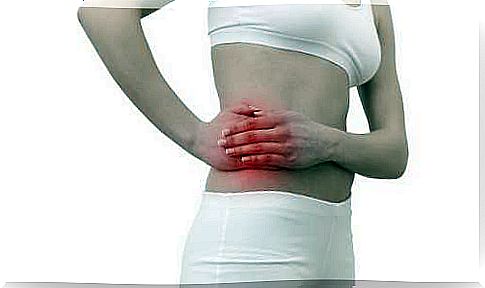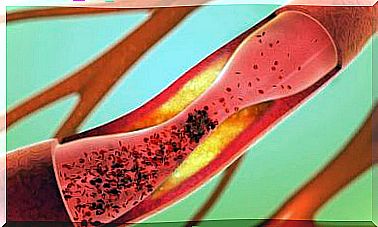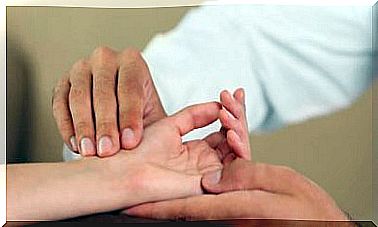How To Find Out If You Have Appendicitis

Appendicitis can quickly become serious and often requires surgery. Therefore, if you have pain in the right side of your stomach, it is always a good idea to go to the doctor to check if you have appendicitis. It is also important to be able to recognize the symptoms yourself.
Appendicitis is, as the name suggests, an inflammatory condition of the appendix, the small organ that sits first on the colon. Both children and adults can get appendicitis.
Here are some of the most common symptoms of appendicitis.
This is how you know if you have appendicitis

1. Abdominal pain may be a sign that you have appendicitis
Abdominal pain may be a sign of appendicitis. The pain often begins near the navel, but spreads slowly in the lower right part of the abdomen, just above the hip bone.
When you press on the abdomen where it hurts, the pain becomes intense and can almost feel unbearable. Your stomach feels hard and it can feel like you are full. This may be because the inflammation has spread to the intestines.
The abdominal pain can also feel like a sharp pain in the right hip when you walk. It helps a little to lie down, but only for a short time. If in doubt, try coughing. If you feel a sharp pain or burning sensation in your stomach when you cough, it may indicate that you have appendicitis.
If your pain gets worse, go to the doctor or the emergency room immediately.
Also read: What is appendicitis and what causes it?
2. Several symptoms that may be signs of appendicitis:
- Fever. If you have pain in the right side, while you have a fever, it may be due to appendicitis.
- Constipation. An inflamed appendix almost always causes some form of disturbance in the small intestine. It is not uncommon to experience constipation. If you have difficulty getting rid of your stools, it can also cause more abdominal pain.
- Lack of appetite. Appendicitis can make you feel bloated and full. Flatulence is also quite common and can be very frustrating.
- Vomiting, malaise and fatigue are three other symptoms that also often accompany appendicitis. Many people experience these symptoms before the abdominal pain becomes very bad, and that in itself can be a reason to go to the emergency room.
Causes of appendicitis

- Hyperplasia can lead to appendicitis. The name may sound complicated, but it is easy enough to understand. Hyperplasia is the medical term for rapid cell division. That is, more and more cells come in without the cells getting bigger. It is, for example, hyperplasia that causes hard skin on the feet.
- Waste substances and toxins. Sometimes the part of the intestine that sits close to the appendix will build up waste that the body has not got rid of. Therefore, the intestine can become blocked or infected, which disrupts the normal flow in the intestines. People who often suffer from constipation also have a higher risk of getting appendicitis. The intestine can become so inflamed and infected that it can lead to peritonitis, which is very dangerous.
- Inflammation. The walls of the appendix are lined with small lymphoid follicles. They are very similar to the tonsils in the throat. Sometimes disease or food can cause the bacteria on the follicles to grow and infect them. They can trigger an infection and thus lead to appendicitis.
Also read: Is there a proper way to empty the bowels?
How to prevent appendicitis
Your diet has a big impact on your health. Your food is therefore the best way to prevent many diseases. This does not necessarily mean that you can ever avoid getting appendicitis, but healthy eating habits can at least reduce the risk.
Eat healthy, avoid processed foods, drink plenty of fluids, and eat well with protein, vegetables, and fresh fruits.
Probiotics are also good. Foods such as Greek yogurt and kefir help promote the good bacteria that can protect against infections. You can also try drinking a glass of warm water with lemon juice every morning. It gives you an extra shot of vitamins to start the day on.









